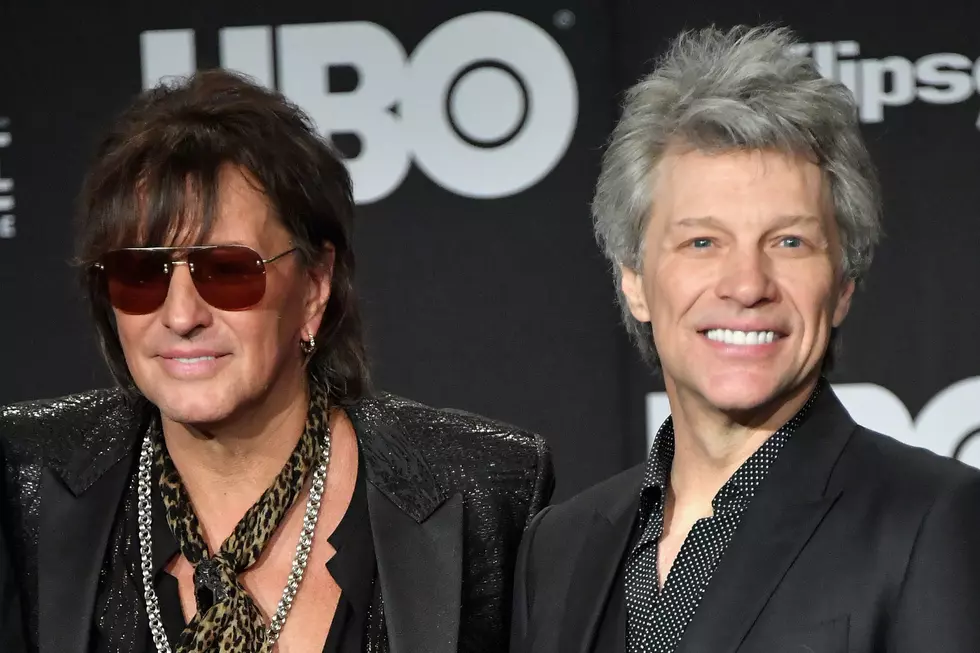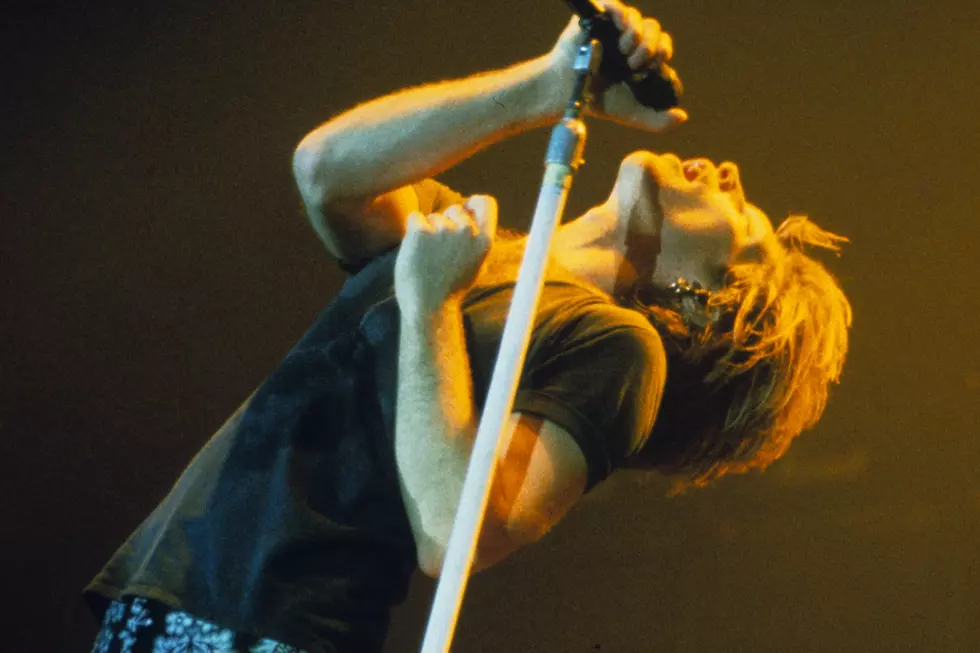
Richie Sambora Wanted Bon Jovi to Be More of a Band
Richie Sambora suggested he started becoming unhappy with the way Bon Jovi were progressing as early as 1985.
He quit the band acrimoniously in 2013 but later settled his differences with singer Jon Bon Jovi, and teamed up with his former colleagues at their induction into the Rock and Roll Hall of Fame last month.
“I thought we should have made more strides to become a band,” Sambora told Rock Talk With Mitch Lafon in a recent interview, when the discussion steered to the group's second album 7800 Degrees Fahrenheit. “It was going towards Jon being the front-guy and nothing else. I kept on going, ‘American rock 'n’ roll band, American rock 'n’ roll band, American rock 'n’ roll band.’”
Sambora also admitted to dissatisfaction over the production of that record, saying producer Lance Quinn had “double-booked himself” with a second band and as a result wasn’t able to do his best work. “That really, really kind of made things a little tense,” he said. “If that record … sounded like a Bob Rock production, it would have been a whole different story.”
Asked to comment on the longstanding rumors that Hugh McDonald had played a bigger role in recording the early albums than the band's actual bassist, Alec John Such, Sambora said, “He did at the time because ... this is no knock on Alec. Alec, you know, takes a little longer to come with a part or whatever, and we were moving pretty quickly.”
Sambora said McDonald, who officially joined Bon Jovi in 2016, was “an old friend” and “one of the first guys that helped me out.” "He's been the bass player in the band for all this time and created some of those parts," he noted. "Hugh definitely helped out.”
Such was also part of Bon Jovi’s Rock Hall reunion, an event that Sambora said “wasn’t awkward or anything like that." “I was there for 31 years," he pointed out. "It was easy, fun.”
More From Ultimate Classic Rock









